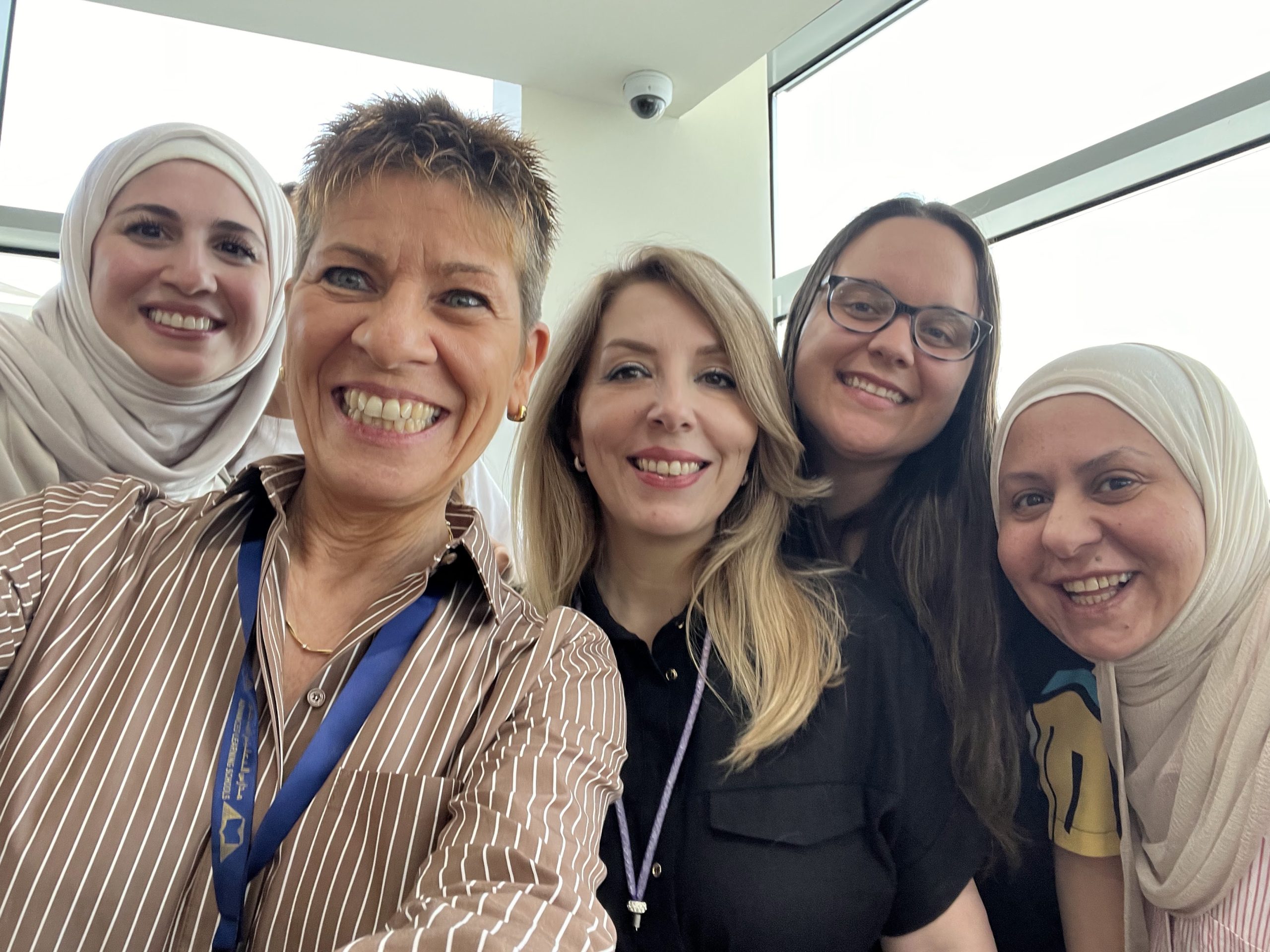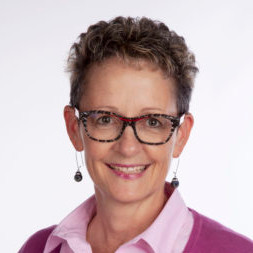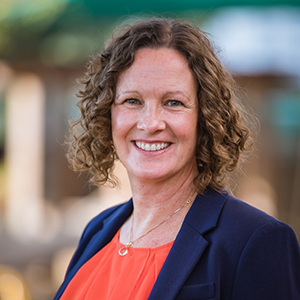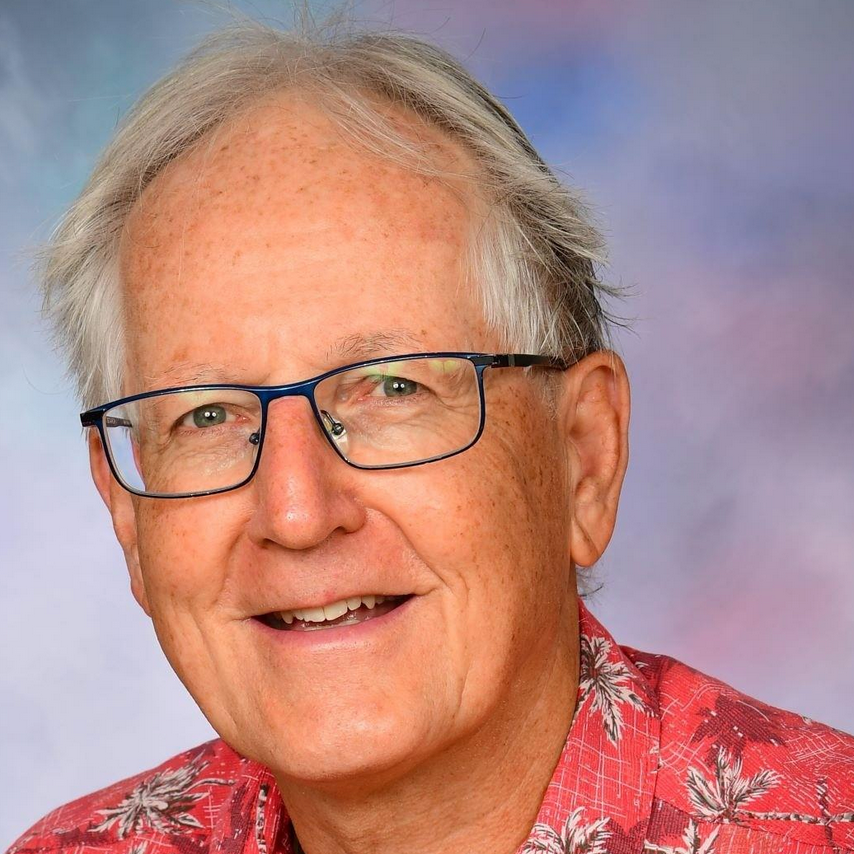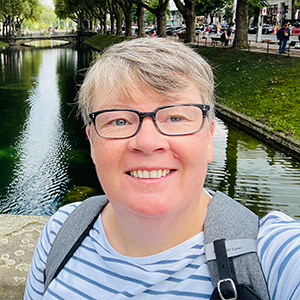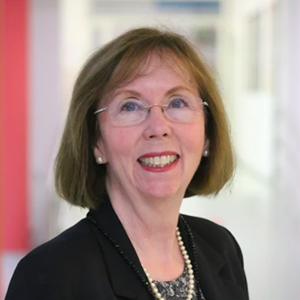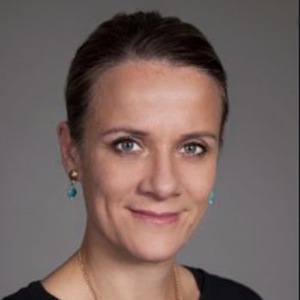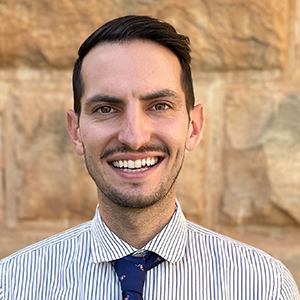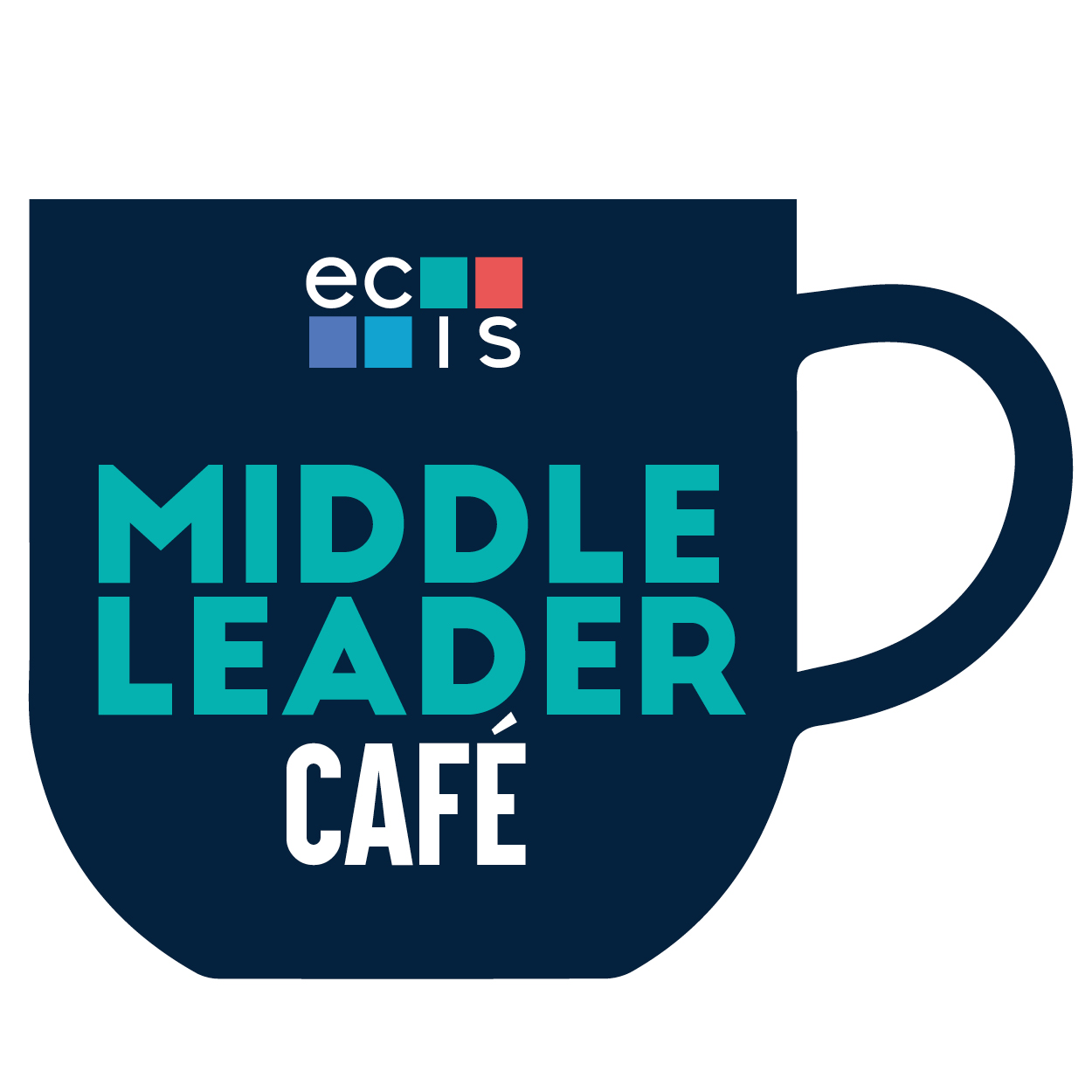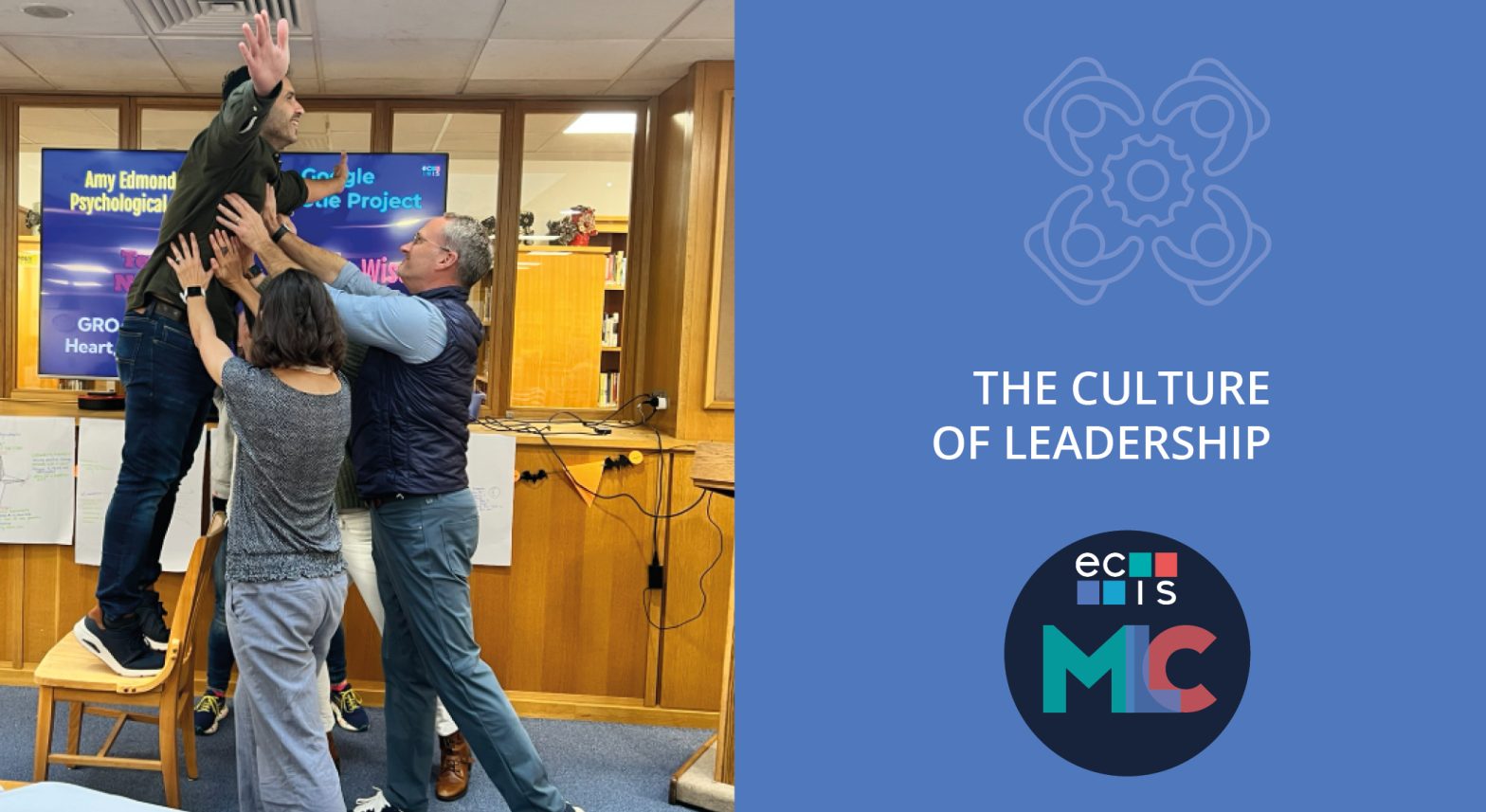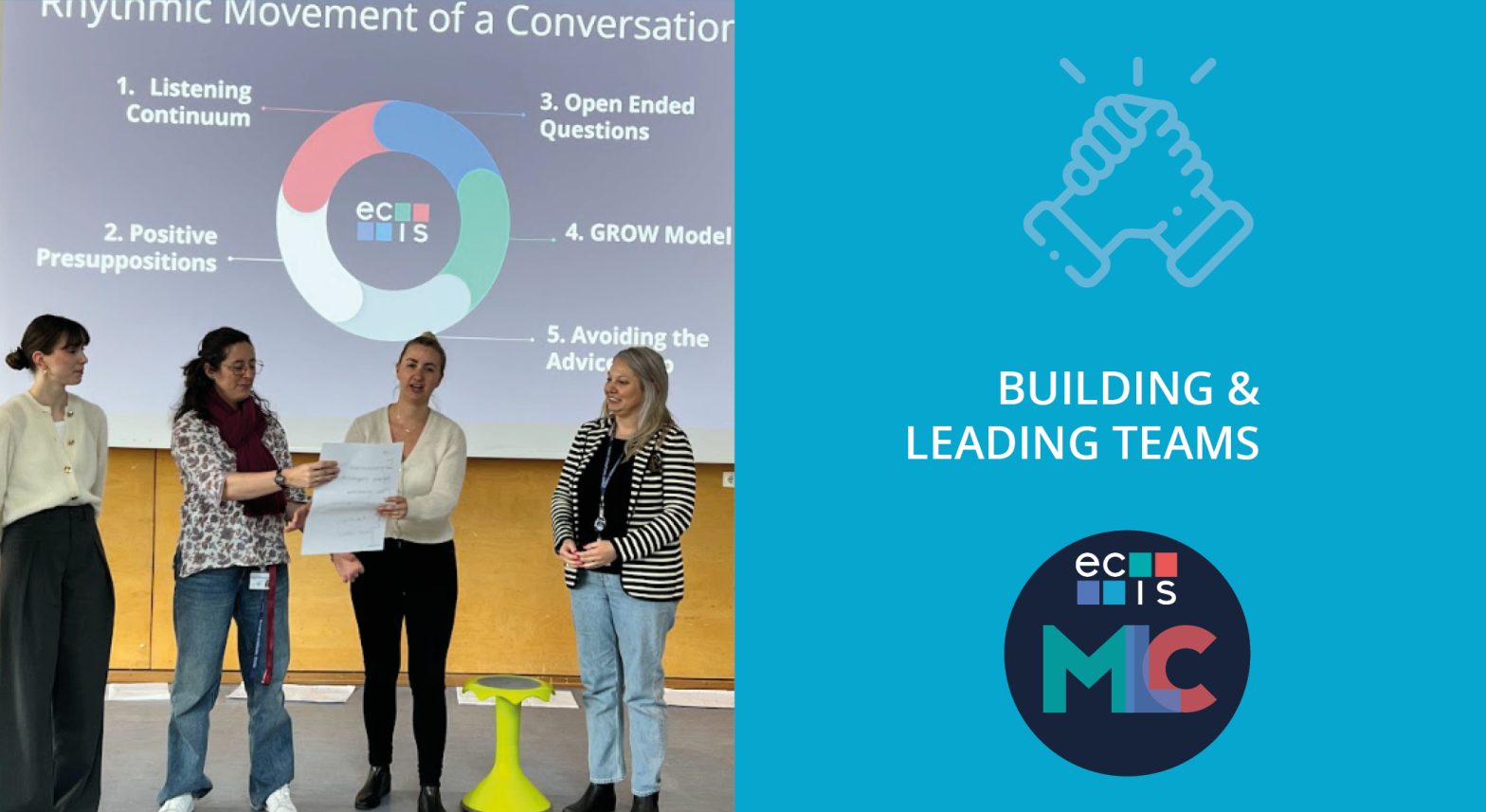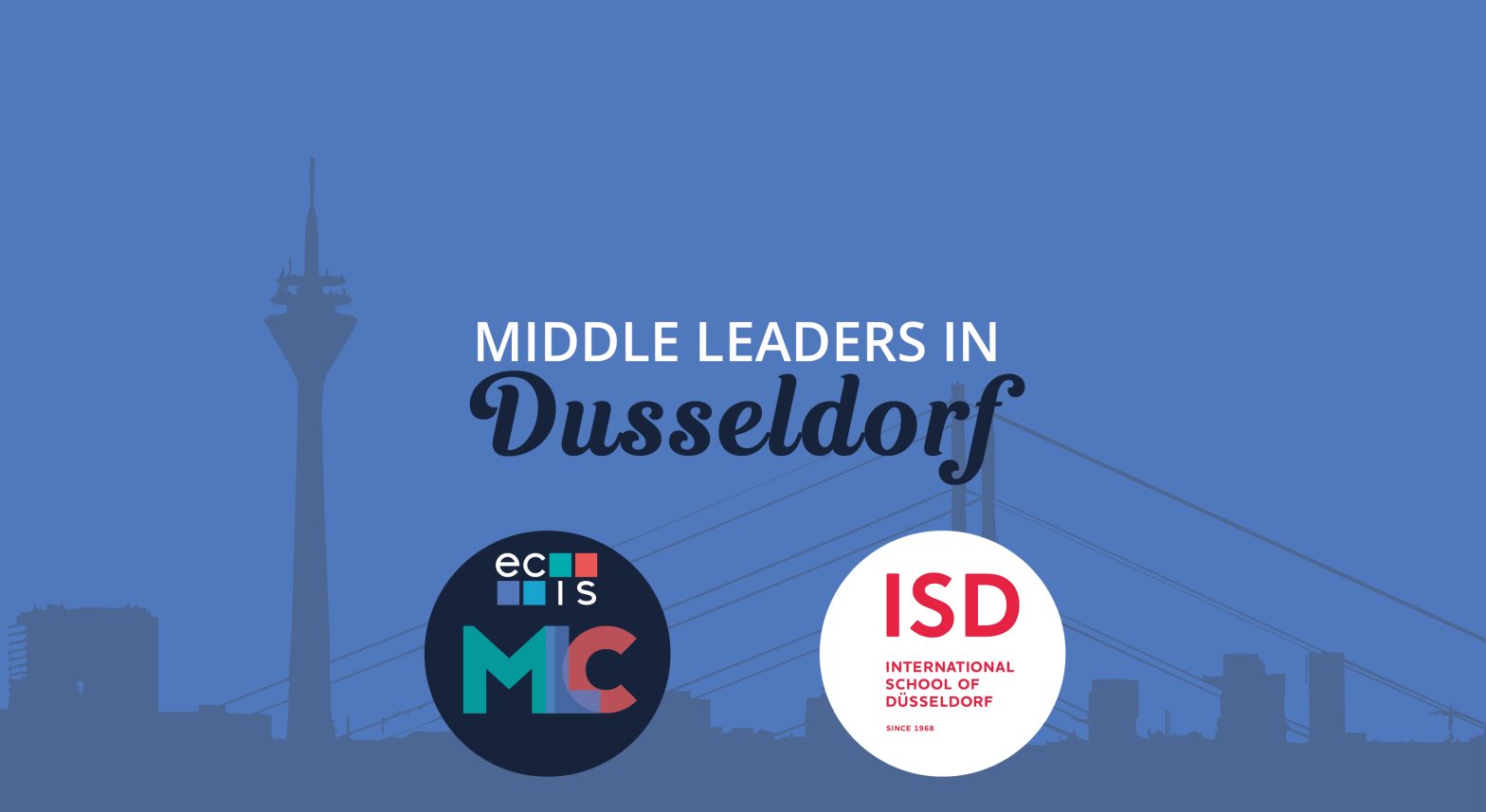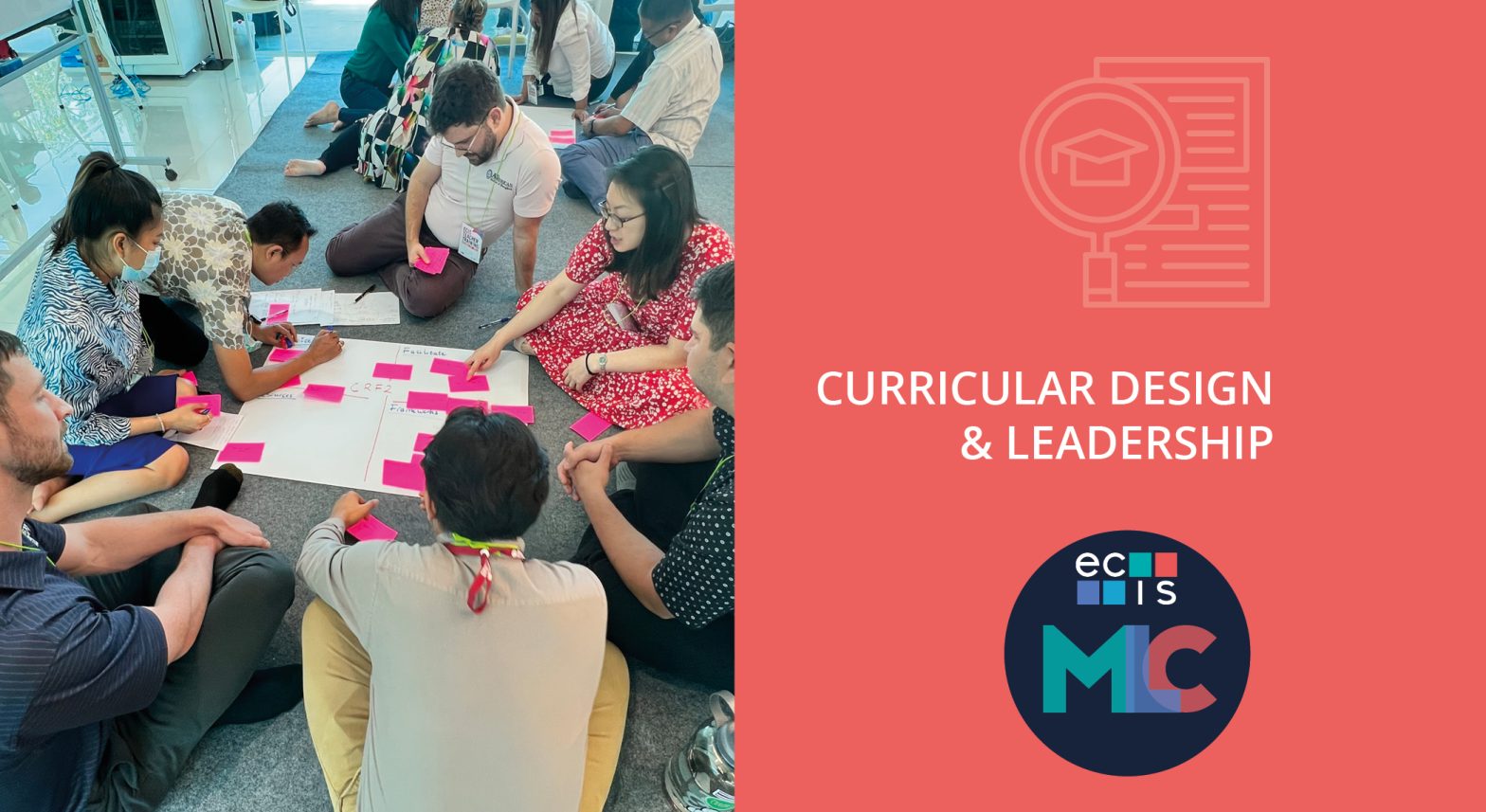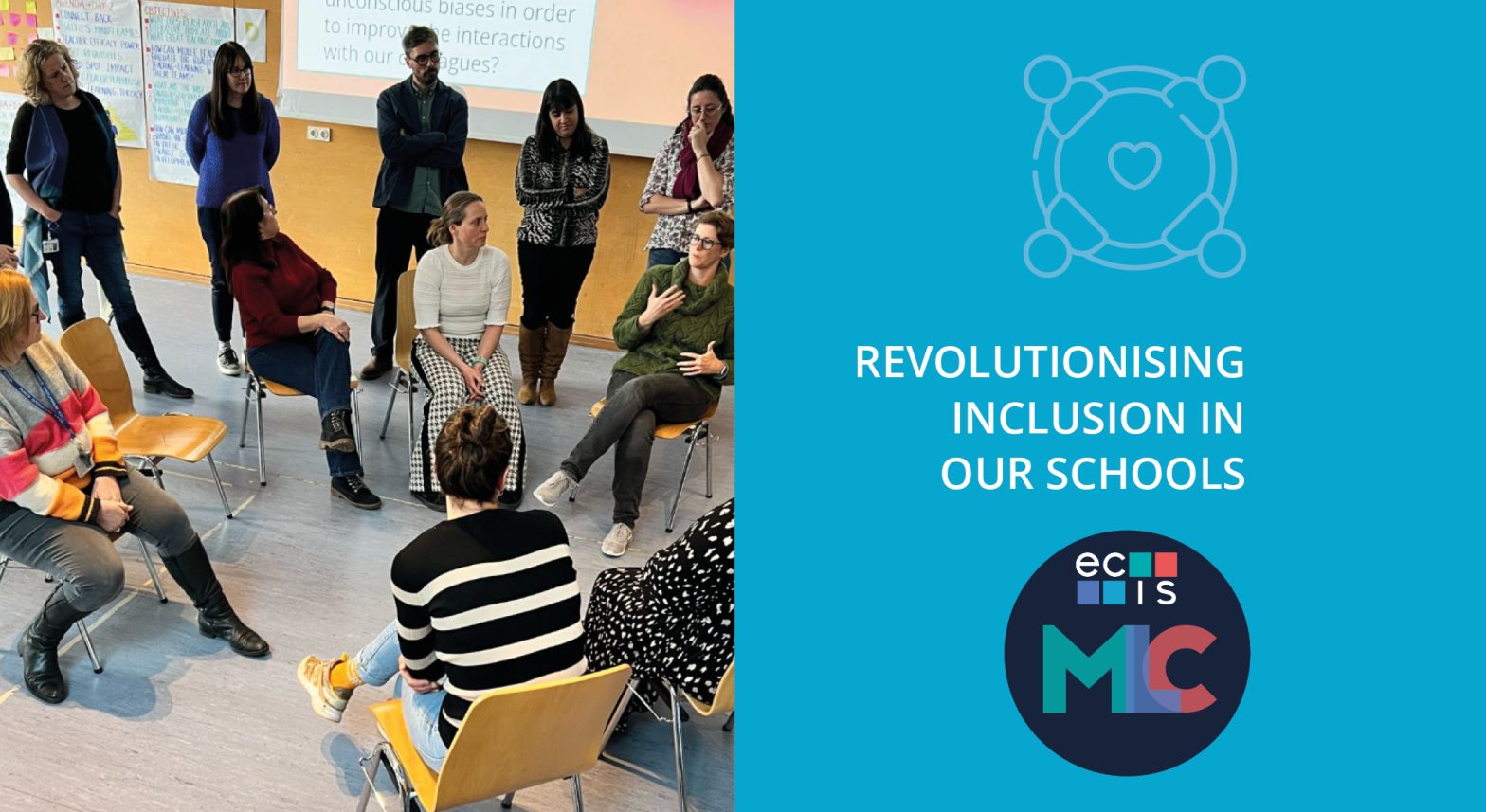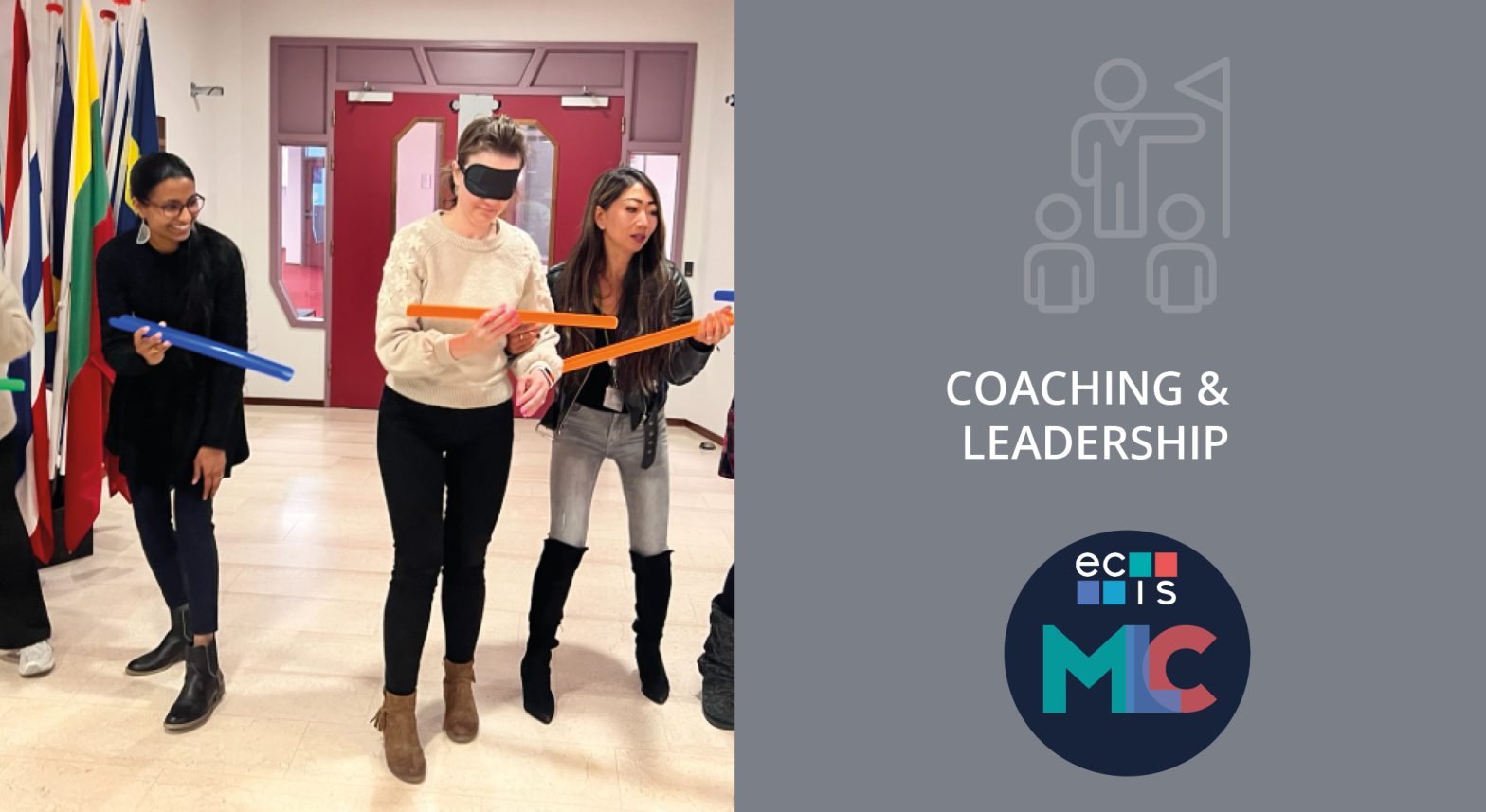MORE THAN A COURSE, IT’S A COMMUNITY!
BESPOKE IN-PERSON AND ONLINE COURSES: 2025-2026
We define Middle Leaders as teachers and coordinators in schools (Preschool-Grade 12) who have a specific area of responsibility that involves leading and collaborating with teams. Middle Leaders are the change agents of a school; they work with teachers to ensure great learning happens.
Effective professional learning builds on the competencies of Middle Leaders to support their roles and responsibilities within the context of their schools. These programmes are sustained and multidimensional to meet the array of needs of a Middle Leader. ECIS proudly provides a variety of courses designed to enhance the leadership abilities of Middle Leaders.

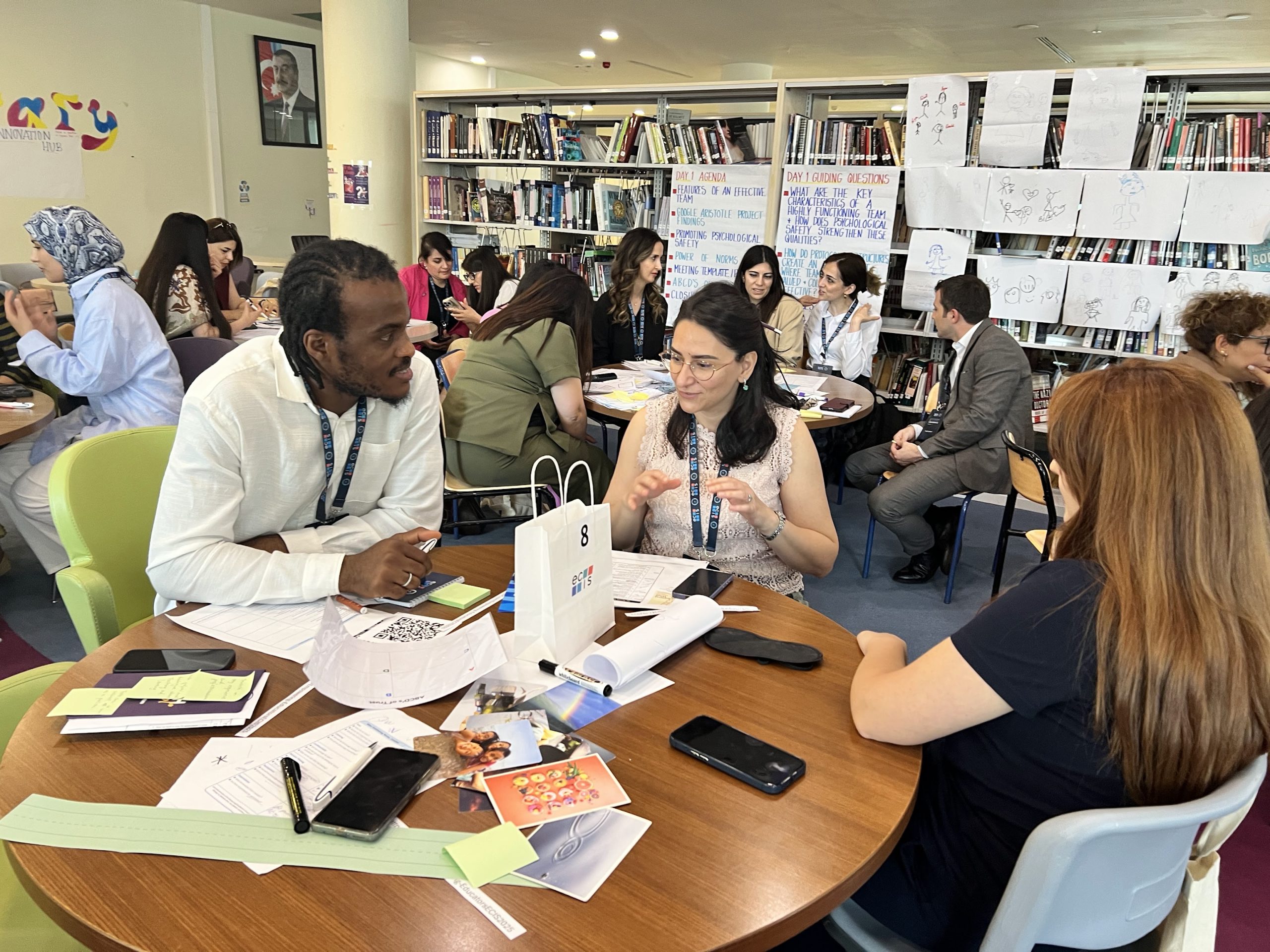
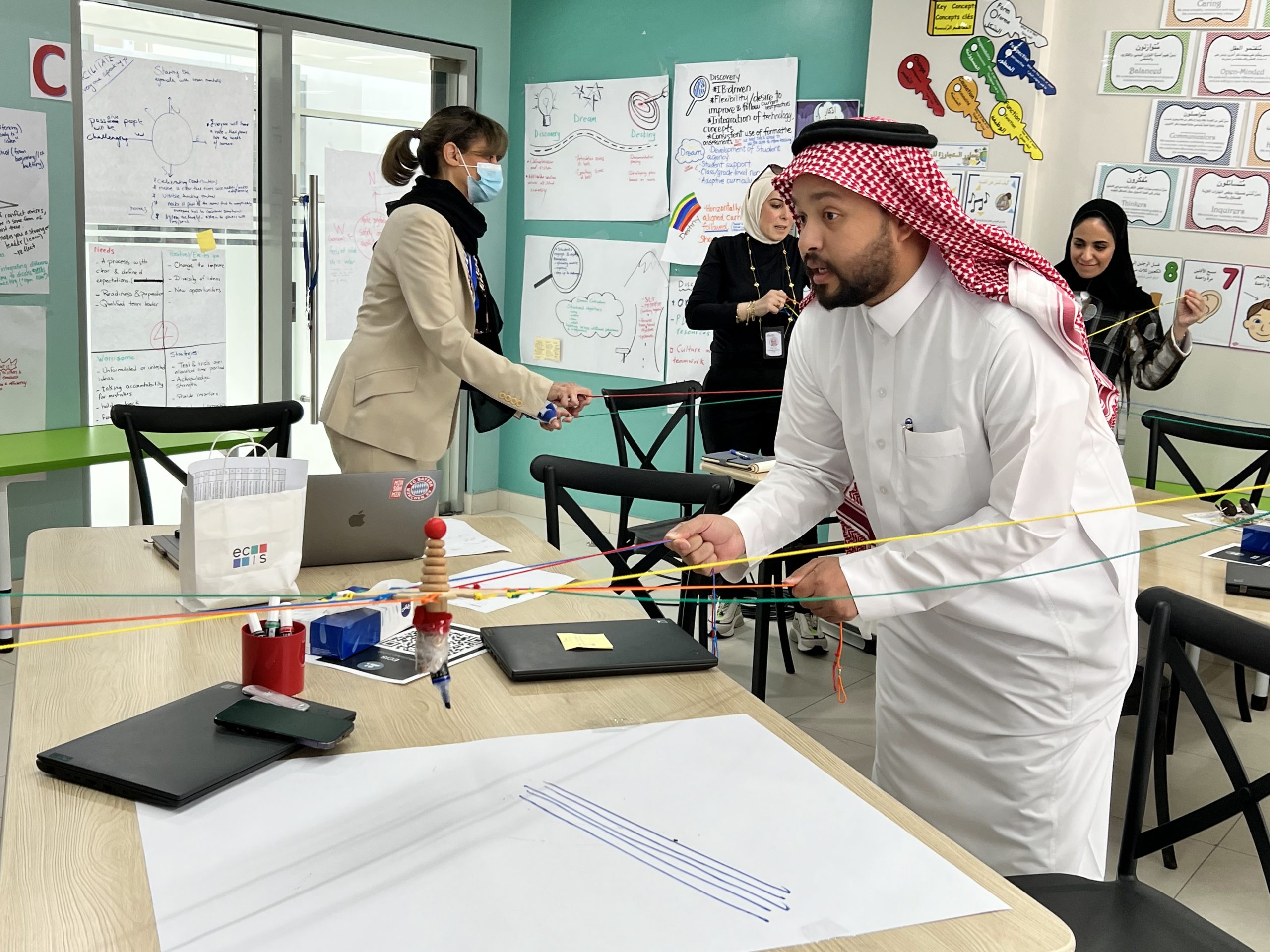
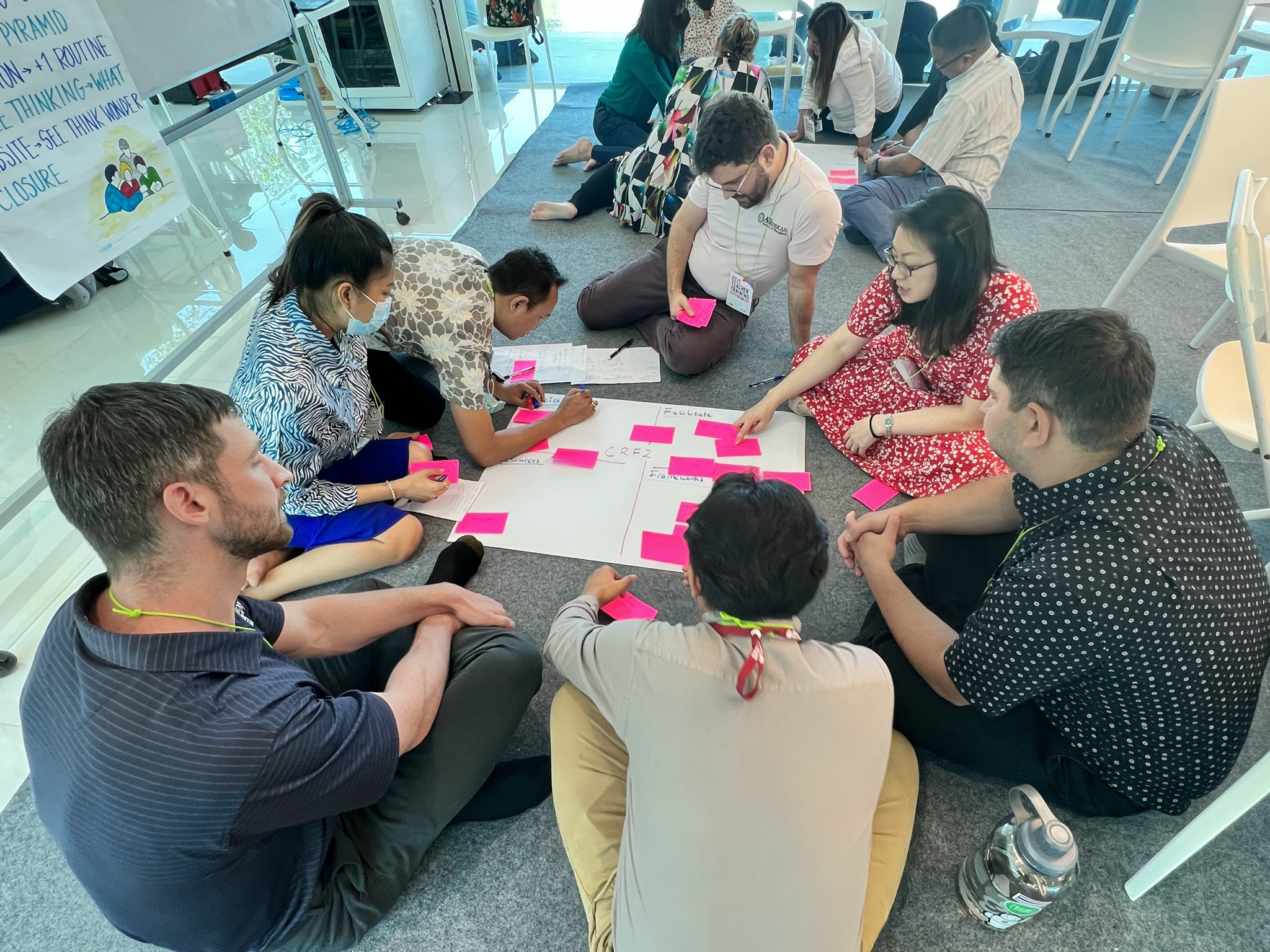

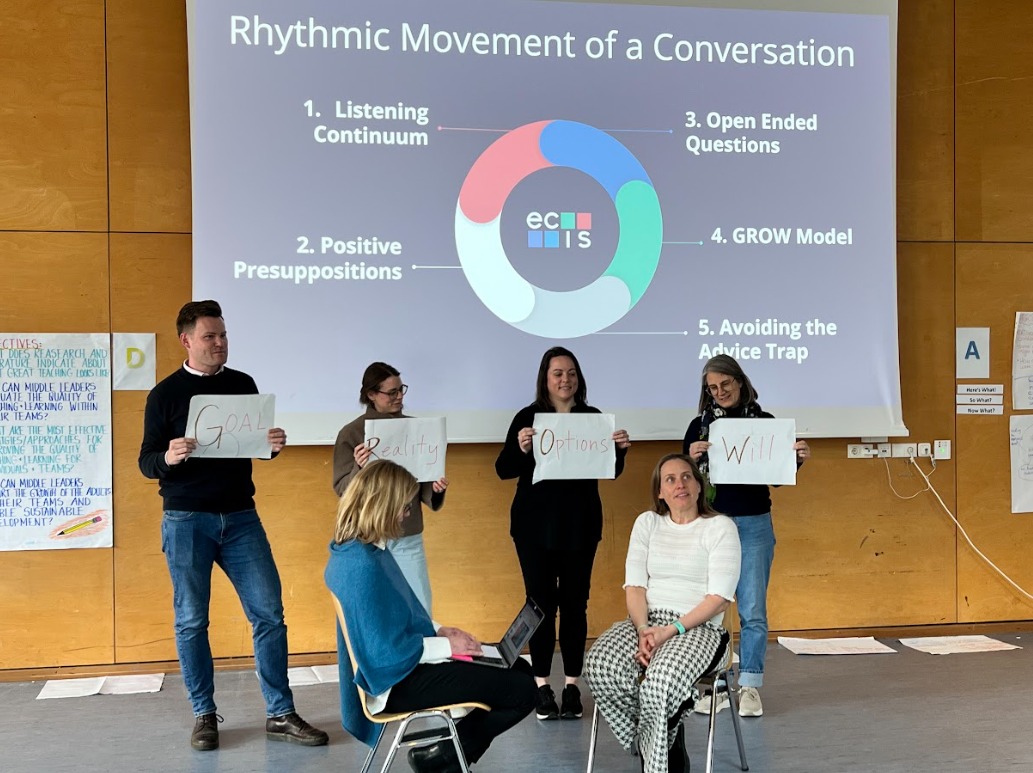
Scheduled Online Courses
8, 15, 29 October & 05 November: Starts each day at 15:00 London time.
Facilitated by John Mikton
In international school educational leadership, digital fluency—which includes literacy, citizenship, tools, security, and devices—today are key learnings for middle-level leaders, enabling them to effectively fulfill their roles in the dynamic landscape of education. “Digital Fluency for Middle Level Leaders” explores the digital competencies necessary for leadership in an international school setting.
Given the accelerated changes in the digital world impacting us both professionally and personally, the course supports middle-level leaders to creatively and critically leverage digital environments and tools, including artificial intelligence, to enhance their leadership capacity.
Emphasizing the development of a middle-level leadership disposition with ethical online behavior and positive digital footprints, the course supports middle-level leaders with the knowledge, skills, and understanding to seamlessly integrate digital fluency into their leadership practice.
Throughout the course, participants will explore key digital literacies and practical applications. They will delve into strategies for effective digital communication, collaborative workflows, and digital tool utilization, emerging from the course with the skills to navigate their roles as adept ‘digital fluency leaders.’
Course Objectives:
·Gain an understanding of digital fluency components and their relevance in international school educational middle level leadership.
·Analyze the impact of rapid digital changes and develop strategies to leverage digital tools effectively for enhanced middle level leadership capacity.
·Cultivate a middle-level leadership disposition focused on ethical online behavior and positive digital footprints for seamless integration of digital fluency into middle level leadership practice.
·Acquire practical skills in key digital literacies and applications, including digital communication and tool utilization, to emerge as proficient ‘digital fluency middle level leadership.’
25 September & 02 October: Starts each day at 09:00 London time.
Facilitated by Teresa Belisle
What role do middle leaders play in ensuring teachers are engaged in current, best practice around assessment? We know that assessment is most useful when teachers know how to use it to improve learning and achievement. This course draws on the latest research and literature about assessment and explores it through a middle leadership lens.
This course covers several key areas that will deepen understanding of best practices that lie at the heart of assessment, including assessment for learning and feedback.
Participants will explore how to influence and support their team with the use of assessment to inform teaching and learning. The course will look specifically at how feedback can be used to optimise learning and progress.
The course will also unpack how leaders can make sure that assessment is accessible for all students and consider the role of leaders in supporting wellbeing in relation to assessment.
At the end of the course, participants will leave fully equipped with practical knowledge and powerful strategies to lead assessment for learning with real confidence.
Key questions for the course:
· What is assessment and why does it matter?
· Where do assessment for learning and feedback fit in and what does best practice look like?
· What do leaders need to do to make sure assessment is for all learners and how can we support wellbeing in relation to assessment?
· How can a middle leader influence their team to implement best practice?
There are three courses to choose from depending on your time zone:
· 16 & 23 September: Starts each day at 14:00 London time
Facilitated by Nancy Squicciarini
· 03 & 10 February: Starts each day at 09:00 London time
Facilitated by Keryn Dowling
· 10, 17, 24, & 31 March: Starts each day at 05:00 London time
Facilitated by Keryn Dowling
We know that building and leading an effective team is an important step in enabling individual and collective success. This course explores how middle leaders can create cohesive and collaborative teams that are focused on student learning.
The course draws on the extensive body of literature and research in order identify what is most useful, practical and productive in leading teams.
Teachers and administrators are by definition expected to be leaders. The key is to use that authority thoughtfully, sensitively, and productively. Should we find ourselves in the role of a leader without perceived authority – a more informal position, it is a different dynamic.
Participants leave the course with a clear understanding of how to build a high functioning team in order to transform learning.
Key questions for the course:
· What are some characteristics of a highly functioning team?
· How can I facilitate the creation of a team focused on student learning?
· How can protocols, structures and norms facilitate thinking and a focus on student learning?
· What types of conversations are critical, and when are they likely to occur?
· What processes and behaviours can be prepared in advance to enable difficult situations and conversations to be well managed?
There are two courses to choose from depending on your time zone.
Facilitated by Helen Morgan
· 02 & 03 October: Starts each day at 05:00 London time.
· 21 & 22 May: Starts each day at 09:00 London time.
Coaching is an important leadership approach for teacher leaders because it focuses on getting the best out of people by unlocking and unleashing their potential.
In an educational context, coaching is about developing people so that they are empowered to solve problems and navigate their way through challenge and change. It supports well-being and gives people the skills and confidence to have better conversations and figure things out.
At an organisational level, coaching is pivotal to continuous and sustainable development. This course will equip middle leaders to develop the beliefs, knowledge, skills and understanding to adopt a coaching approach in their everyday practice.
During the course, participants will explore key coaching theory and have practical opportunities to translate this into practice.
They will explore how effective coaches listen well and ask powerful questions. Across the two days, they will build a toolkit of strategies and approaches apply in their own context. They will leave the course with the confidence and skills to become a ‘coaching leader’.
Key questions for the course:
·What is coaching and how can we develop a coaching mindset?
·What is the role of listening in coaching and why does it matter?
·How can asking better questions enable better conversations?
·What tools and techniques do we need in our coaching toolkit?
07, 14, 21, & 28 October: Starts each day at 15:00 London time.
Facilitated by Michael Neumann
In this course, we will examine different ways to explore and create belonging, drawing from theoretical perspectives, research methods, and practical initiatives.
We will investigate strategies for gathering and analysing data, consider how language and policies shape belonging, and develop approaches to move from individual experiences to systemic change. Through discussion, case studies, and collaborative problem-solving, participants will identify actionable steps to foster a more inclusive school environment.
Key Questions for the course:
·Who experiences a strong sense of belonging in our schools, and who does not?
·How do we gather data on belonging in ways that reflect the diversity of our school community?
·How can data help us move from individual experiences to identifying systemic patterns of exclusion?
·How do curriculum, policies, and school practices reinforce social differences, and how can we challenge these structures?
·What strategies can middle leaders use to create sustainable systems that foster belonging for all students?
There are two courses to choose from depending on your time zone.
Facilitated by Keryn Dowling (January) and Nancy Lhoest-Squicciarini (March)
- · 26 & 27 Jan: Starts each day at 05:00 London time.
· 16 & 17 March: Starts each day at 09:00 London time.
At the centre of middle leadership is a commitment and desire to improve student learning. We know there are several factors that impact student learning and at the top of the list of school-related factors is a guaranteed and viable curriculum.
For it to have real impact, it needs to be far more than just a piece of paper.
This course unpacks the role that middle leaders play in driving the curricular vision of the school. Participants consider the key principles of effective curriculum design and implementation.
They will consider how students learn, exploring the latest research in cognitive science and how this can support curriculum design and development.
Participants will leave with a range of practical strategies and tools to ensure that the curriculum supports highly effective learning in their context.
Key Questions for the course:
·How do vision and values drive curriculum design and development?
·What are the key principles that underpin effective curriculum design?
– How is curriculum reviewed to further ensure its alignment with the school’s mission and reflects its culture, context, and student diversity?
·What is the role of the leader in curricular design and development?
29 January & 05 February 2026
Facilitated by Helen Morgan
Being able to manage and embrace conflict effectively is an essential part of middle leadership if teams and individuals are to maintain a shared sense of purpose and direction. As a middle leader, one of the greatest challenges in managing and embracing conflict is managing yourself and making sure that communication is clear and effective.
During this course, participants learn to identify conflict and what their roles and responsibilities are within such a situation. They develop strategies to manage emotions, manage change and learn how to separate the personal from the professional. On a practical level, participants learn how to have difficult conversations and practise different techniques in a safe and supportive environment.
By the end of the course, participants will have a practical toolkit of strategies and protocols to manage and embrace conflict successfully in a range of contexts.
Key questions for the course:
· Why does conflict occur and what is the role of the leader?
· How can leaders manage and embrace conflict within their team?
· How can successful leadership of change help leaders to navigate through conflict effectively?
· What strategies and approaches can leaders use to manage difficult conversations?
06 May: 16:00-18:00 London time
13 May: 16:00-18:00 London time
20 May: 16:00-18:00 London time
27 May: 16:00-18:00 London time
Facilitated by Yasmine Aslam – Hashmi
We know that in diversity there is strength, however how do we develop that strength?
Middle leaders are the bridge in between the teachers, students and senior leadership, making them uniquely positioned to drive meaningful inclusion initiatives. By fostering a deeper understanding of diversity and its role in leadership, participants will learn how to create inclusive environments where all voices are heard and valued.
Through practical exercises and theoretical insights, leaders will explore how creativity and innovation thrive in inclusive teams and how cultural intelligence can enhance collaboration, decision-making, and team performance.
Participants will explore how unconscious biases, shaped by neurological shortcuts, influence decision-making and team dynamics. Through introspection and practical strategies, leaders will uncover the impact of these biases on inclusion and creativity in diverse teams.
Participants will develop the skills to recognize and address systemic inequities, ensuring that practices and policies promote fair access, opportunity, and advancement for all members of the school community. Participants will leave with actionable strategies, a commitment to personal change, and tools to lead diverse teams with empathy, foster creativity and innovation, and inspire positive change in their organizations.
Key Questions for the course:
·How can we develop our Inclusivity Quotient individually to build more effective teams?
·How do biases impact decision-making and team dynamics, and how can a strong inclusivity quotient help address these challenges?
·What role does Cultural Intelligence (CQ) play in enhancing collaboration and leadership effectiveness?
·How can we create equitable environments that leverage diverse perspectives and drive participatory creativity and innovation?
Facilitated by Nancy Squicciarini
There are two courses to choose from depending on your time zone:
· 24 Sept & 01 Oct: Starts each day at 05:00 London time
· 19 & 26 Nov: Starts each day at 09:00 London time
We know that investing teacher quality improves learning, builds capacity and increases retention. These are only a few of the benefits.
This is an interactive course that gives middle leaders the knowledge and practical tools to lead teacher teams. Across the course, you will explore what effective teaching and learning looks like based on the latest research and literature. You will also learn how to use evaluation as a catalyst for high quality professional development at an individual and group level.
Throughout the sessions, we will look at different models, strategies and approaches for improving teacher quality with your own team. By the end of the course, participants leave fully equipped to lead Teacher Quality Improvement in their own setting.
Key questions for the course:
·What does research and literature indicate about what great teaching looks like?
·How can middle leaders evaluate the quality of teaching and learning in their teams?
·What are the most effective strategies and approaches for improving the quality of teaching and learning for individuals and teams?
·How can teacher leaders support the growth of the adults in their team and enable sustainable improvement and professional development?
There are two courses to choose from depending on your time zone.
· 12, 19, 26 November & 03 December: Starts each day at 05:00 London time, facilitated by Teresa Belisle
· 05, 12, 19, 26 March: Starts each day at 15:00 London time, facilitated by Jimena Zalba and Cindy Gause Vega
In an organisation, leaders make the weather and create the culture. This shapes how the organisation works and feels. The Culture of Leadership is an exciting core course that gets to the heart of this by focusing on international teacher leadership at the middle level, exploring the relationship between culture, context and leadership.
During the course, participants explore critical aspects of the middle leader role and how their beliefs and values influence their practice. In addition, they will have the opportunity to build their leadership knowledge, understanding and skills order to strengthen their effectiveness and impact.
By the end of the course, participants will have a strong understanding of why leadership matters and how they can shape the culture in their team. They will leave with a clear plan to assist them with the successful application of their learning.
<strong>Key questions for the course:</strong>
·What does research claim about effective teacher leadership?
·To what extent is leadership context driven? ·How does culture impact leadership?
·How can a teacher leader develop the ability to lead effectively in different contexts?
·What are beliefs and values about leadership and how does this impact leadership practices?
Upon successful completion of each course, participants earn a Middle Leader Certificate. Once FOUR individual certificates have been completed across any combination of course offerings, the participant qualifies for the ECIS Middle Leader Award, a recognition of sustained professional learning and leadership development.
These sessions are aimed at building the capacity of middle leaders and supporting a sustainable, ongoing professional learning journey. Additional development opportunities include access to a dedicated Middle Leader LinkedIn group, Middle Leader Cafés for informal dialogue, and a structured mentoring platform for ECIS member schools and affiliations.
New for 2025-2026
Every School Membership includes one free place (per-school) on an online Middle Leader Course, worth £350.
The objectives are to:
- Provide differentiated approaches to meet the needs of middle leaders within our international school community to positively impact student learning and teacher practice
- Create a culture of learning which promotes peer collaboration and connection, to elevate pedagogies that positively impact student learning and teacher practice
- Establish a platform for continuous professional learning, avoiding the typical “one size fits all” approach
- Highlight ongoing research that expands Middle Leaders’ understanding of effective leadership practices and team effectiveness
- Elevate mentoring possibilities to empower Middle Leaders to make sustained and transformative changes within their schools
AN EXCEPTIONAL OFFER FOR OUR ECIS MEMBER SCHOOLS
Make an impact, build capacity, and increase retention by signing up your Middle Leader team to our top-rated Middle Leadership Certificate. If you want to hit the ground running, check out our fantastic new special offer for schools.
10 CERTIFICATE PLACES: £9,750
05 CERTIFICATE PLACES: £4,875
Learn more about each course below. For further details, please contact nancy@ecis.org.

